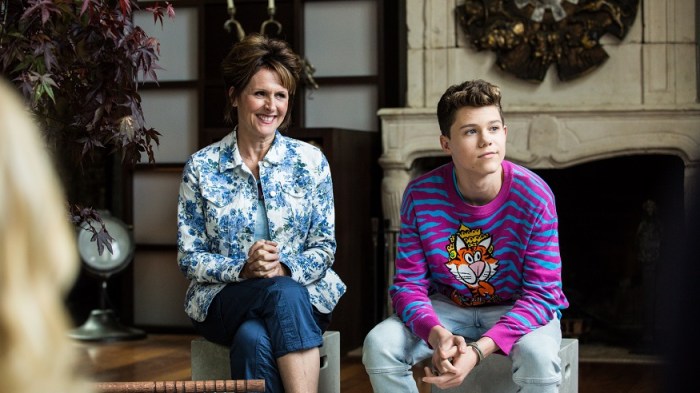Hadas Yaron laughs a lot. It’s something the Israeli actress doesn’t get to do in her two big films, “Fill the Void” and the new “Felix and Meira,” both in which she plays a young Orthodox Jewish woman dealing with romantic issues. In “Fill the Void,” for which Yaron won awards at the Venice Film Festival and the Israeli equivalent of the Oscars, she played a woman struggling with entering an arranged marriage. In “Felix and Meira,” set in Montreal, she’s already married and finds herself drawn to a secular single guy. Not that Yaron, who is not Orthodox and had no real dealings with its members until “Fill the Void,” was jumping at the chance to do the same type of role a second time. Were you initially reluctant to do another film about an Orthodox woman?
Yes. I was. [Laughs] I was. At first I actually didn’t want to read the script. I was afraid it would be the same.
And then you’d be typecast. Exactly. [Laughs]
But this is very different.
“Fill the Void” is a very Orthodox film. It was made by a woman in the community and it’s very kosher. “Felix and Meira” is not a kosher film. [Laughs]
You’re not Orthodox yourself. How did you ingratiate yourself into the community back during “Fill the Void”?
It was easy because I had an Orthodox director [Rama Burshtein]. She took me into her life and house. We went to the synagogue together and went on holidays. I really got to know this world, so when I came to this role I had to learn things from a different perspective. I had this whole background and a different version. Where “Fill the Void” was very much a film inside the Orthodox community, “Felix and Meira” is very much outside, and it at least seems to be more critical of the way they treat women and how living within it affects those who’ve lived inside it their entire lives. It’s funny because a lot of people felt when they saw “Fill the Void,” even though it was made by a woman from that world, they said it was criticizing it too much. Some people asked her how she could go on living in this community after making the film. When I read “Felix and Meira” I was afraid it was judging this world, because it talks about the darker side. I was afraid it was going to be judgmental. My knowledge of this world came from “Fill the Void,” and I met so many incredible people and I learned so many beautiful and spiritual things about this community. The first time I read “Felix and Meira,” I was like, “Hey, whoa!” [Laughs] I felt it was very judgmental. But I also felt I might have been being overprotective. I felt there was only one side of the story, that people from the outside are always judging them. So the first time I read it I thought it was really judgmental. I thought Shulem [Meira’s husband, played by Luzer Twersky] was the bad guy. But I read it again and again and again, and I realized it wasn’t judgmental at all. For me it was more about opening my mind so that I could see the whole thing. Meira winds up exposed to the outside world, and at one point tries, very poorly, to play ping-pong. How’s your ping-pong in real life?
I’m actually really good at ping-pong! I’m better than most people, better than the other actors. I had to hold the paddle really weird so I could hit the ball very strangely. I’m very good at ping-pong. I’m glad you asked! You were convincing.
I know, I know. I’m such a good actor. [Laughs]
You also shot a sequence in Times Square, in which Felix and Meira have a magical evening. I personally, as a New Yorker, hate any time I have to spend in Times Square.
Yeah, it’s a terrible place, I know! There are so many people and it’s grimy and disgusting. But we had a good experience filming there. [Laughs] It really captures something that is so shocking and exciting to her. But Times Square is a bad place. How have you adjusted to fame after these films?
Did you say “fame”? [Laughs]
OK, maybe fame’s a strong word, but do you get recognized a lot more on the street?
This film isn’t out in Israel, but “Fill the Void” was. But in Israel people watch television more than they watch films in theaters. So I’m OK, I’m good. I like it this way. I like it that not everyone knows me. Is that weird to say? [Laughs] Mega-fame sounds like it would be awful.
Exactly. Then I can’t do stupid things on the street or stupid things in general. [Laughs]
Like what?
I don’t know! [Laughs] I can’t tell you because then you’ll publish it and I won’t be able to do it! I like the way it is now. I hope it stays this way.
Read our review of “Felix and Meira.”
Interview: Hadas Yaron on the Orthodox community and ping-pong
Follow Matt Prigge on Twitter @mattprigge


















